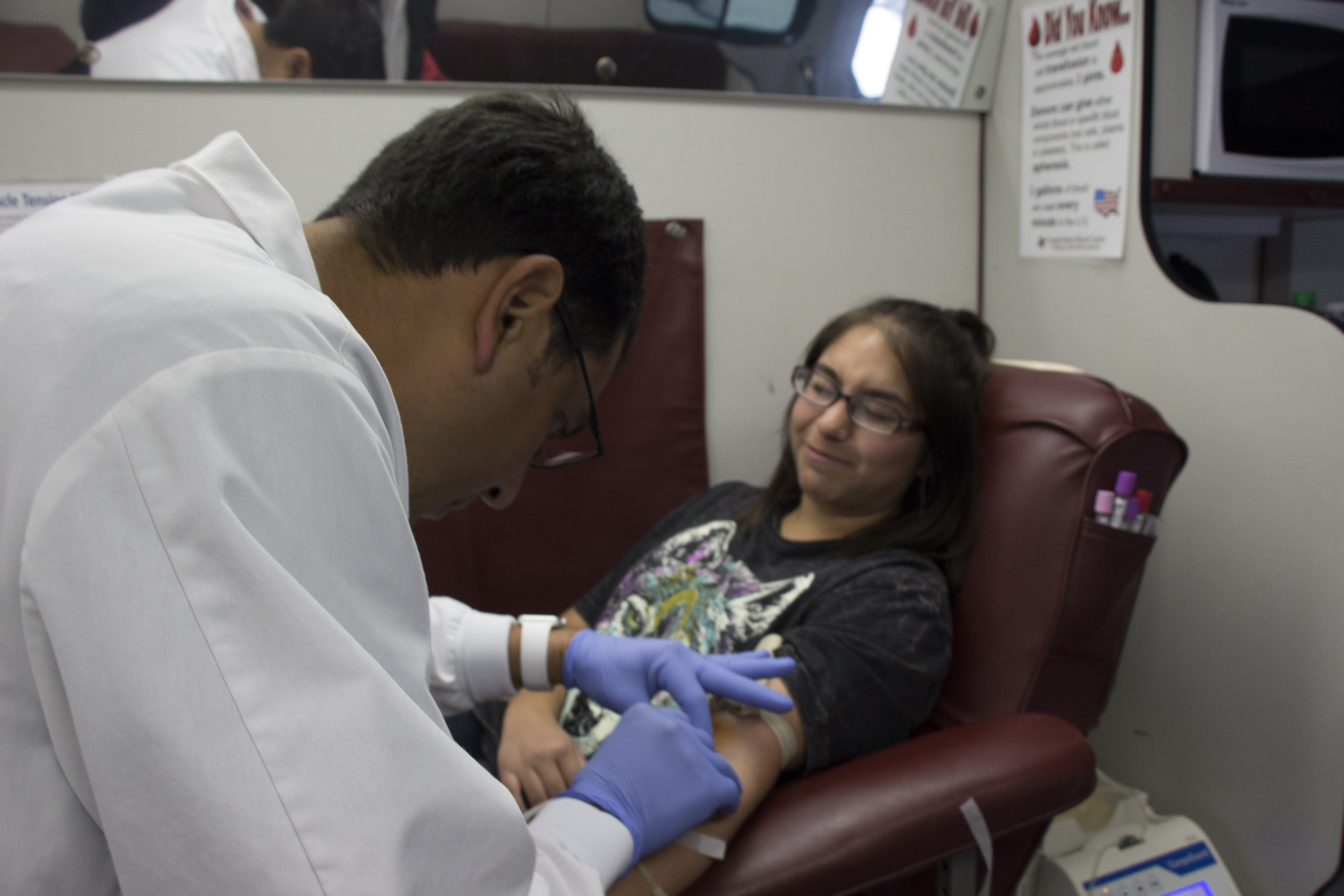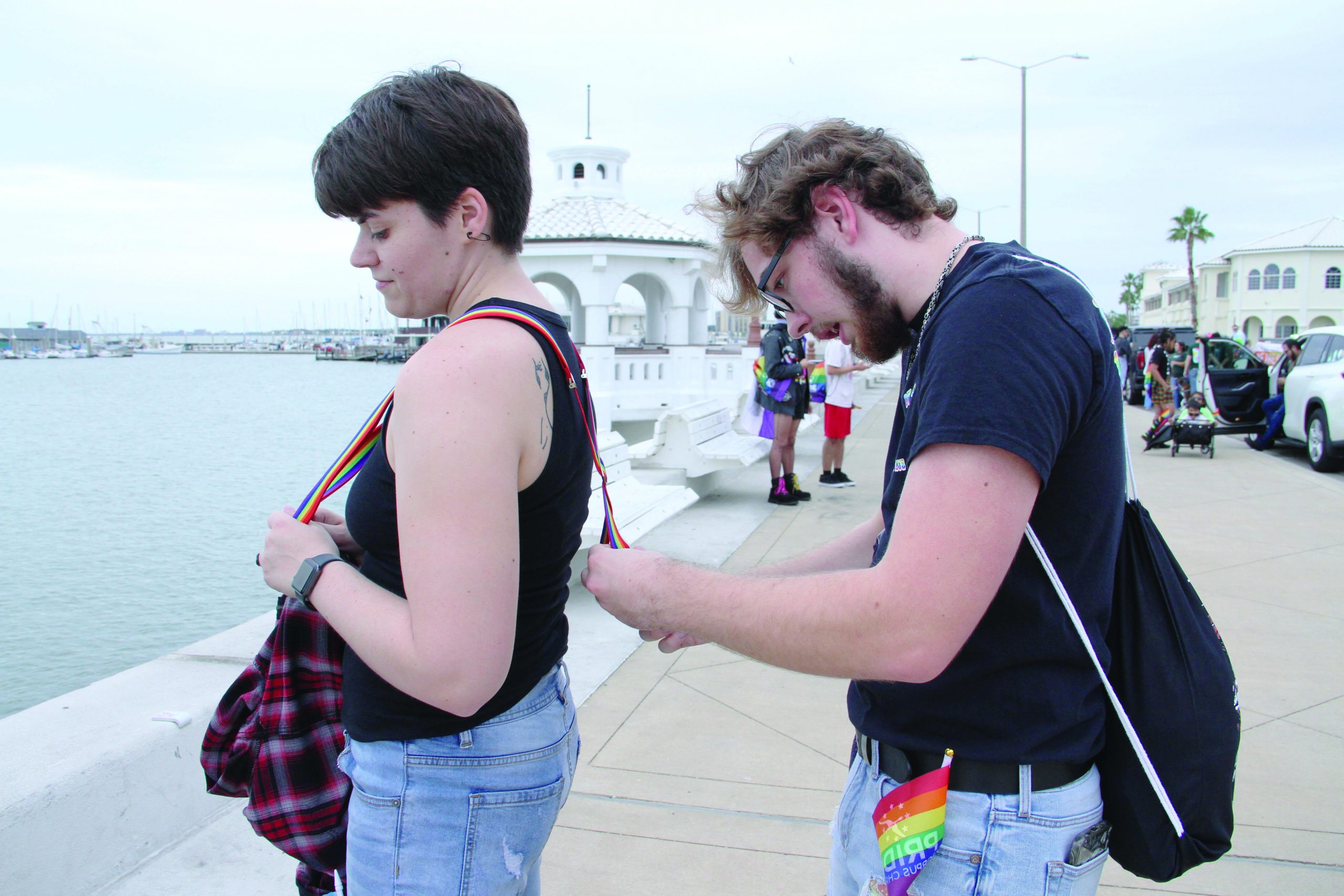mestrada@foghornnews.com
Many high school seniors are donating blood to the Coastal Bend Blood Center to help the community, but also to receive a red cord for graduation.
Tammy Alcala, Collegiate High School career prep teacher, once worked with the blood center and wants students to support the center’s mission.
“Just the experience of saving lives is a good reason to donate blood. It gives the opportunity to do something for their community that’s not too hard to do,” Alcala said.
The Red Cord Heroes Program allows students to donate three times throughout the year or have five people donate in the student’s name to receive a cord. Students are limited to weight, age and medical restrictions.
In the 2016-17 school year, 1,826 high school seniors donated blood and received a red cord from the blood center.
Elizabeth Constance, donor development office coordinator at the Coastal Bend Blood Center, said the red cord program means a lot to the center, accounting for 80 percent of the blood supply collected.
“Blood is not something we can reproduce … and high school is a way that we can do a community outreach in an effective way. Hopefully, we can cultivate long-lasting donors through the high school program,” Constance said.
Clarissa Juarez, a Collegiate High School senior, was excited to donate blood for the first time and save three lives at a blood drive.
“I feel honored to be donating blood to save people’s lives,” she said after having her blood drawn.
However, unlike most Collegiate High School seniors who have given blood this year, Juarez threw up after donating. It is common, according to Eddie Garcia, the nurse who drew blood from Juarez.
“I found it hard to breathe and then all of a sudden I felt dizzy, all of which are side effects. My vision started getting blurry and everything was turning bright,” Juarez said.
About 15 minutes after giving blood and sitting down on a school bench, Juarez felt the dizziness again and lost her balance, unexpectedly losing her sight and seeing pure darkness.
With her expression totally gone, Monique Moreno, dean of student services at Collegiate, bought orange juice and cookies to help Juarez with her iron. She eventually regained her color and ability to move again. The mishap came from lack of sleep and food consumed on the day of giving blood.
Despite a scary experience like this, Juarez will continuing to give blood in the following six weeks to receive a cord and save lives.
“I’m most likely going to donate blood again to get the red cord but next I’m going to take the requirements to donate blood seriously, like eat a lot of food and get rest to save more lives,” Juarez said.





